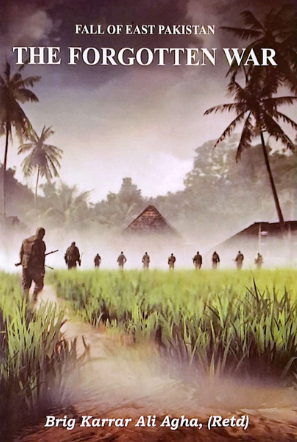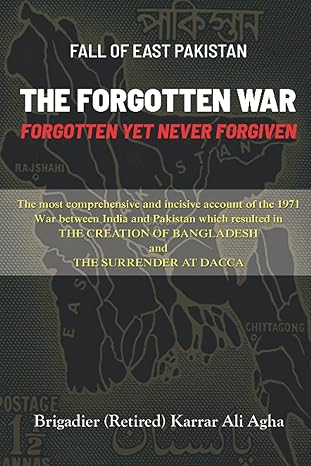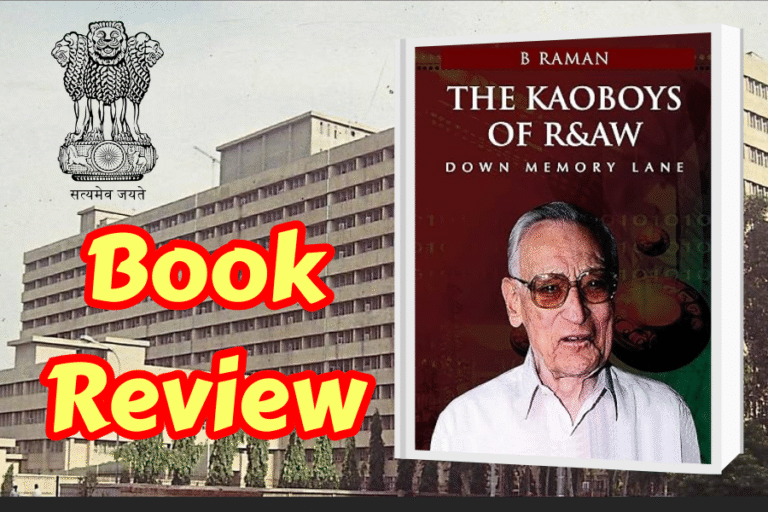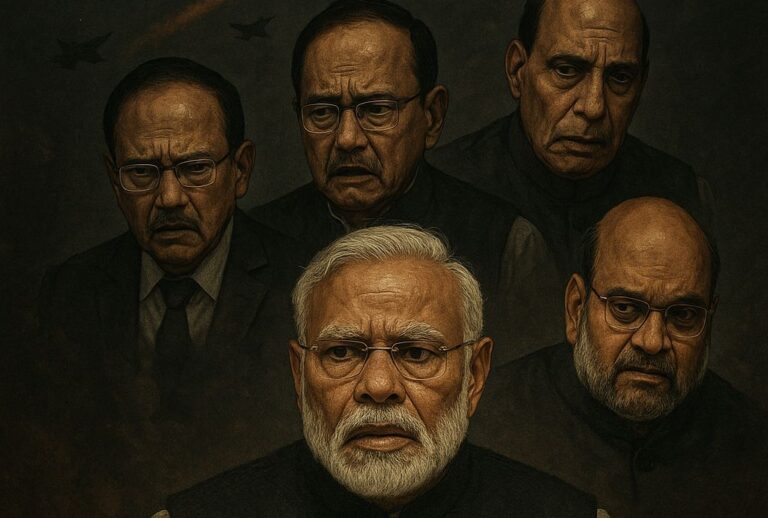Brigadier Karrar Ali Agha’s The Forgotten War: Fall of East Pakistan is more than just a military chronicle. It is a haunting and unapologetically honest reflection on one of the most traumatic chapters in Pakistan’s history, the dismemberment of the nation in 1971. Painstakingly researched and deeply personal, the book is a rare blend of tactical analysis, historical reflection, and raw emotional truth.
I read the Second Edition of the book, which has been thoughtfully edited by Lt Gen Tahir Mahmud Qazi (Retired). This edition includes valuable footnotes that help contextualise key decisions and events for modern readers. As the editor aptly states in his introduction, “The goal of publishing this work is not only to recount the events and decisions that shaped the conflict, but also to explore the human experiences and lessons that have emerged from it.” That spirit of sober reflection and emotional depth runs through every page.

Drawing upon his own experiences as a senior officer in the Pakistan Army, Brigadier Agha brings to life the battlefield realities faced by the Eastern Garrison. These were men who fought, suffered, and, in many cases, perished in isolation, with unmatched courage. While others have drowned this tragedy in silence or selective memory, the author peels back layers of confusion and political deception to show us the soul of a soldier caught in a maelstrom beyond his control.
What elevates this work is its refusal to wear ideological blinkers. Brigadier Agha does not hesitate to critique the paralysis at the highest echelons of Pakistan’s military and political command. He exposes strategic miscalculations, flawed assumptions, and the criminal delay in support from the Western Command that sealed the fate of thousands. His assessment of the surrender at Dhaka is clinical yet mournful. It challenges exaggerated accounts and offers clarity amid decades of national denial.
This is not a book that wallows in blame. It recognises the shared suffering of all people affected by the conflict, including Bengalis, Biharis, and West Pakistanis. It laments the loss of unity and the distortion of narratives by external forces and internal failings. In doing so, it offers readers a sobering meditation on how nations fracture. Not just from outside aggression, but from within, through arrogance, indecision, and a failure to hear the cries of their own people.
Some critics may find the tone defensive or believe certain atrocities receive inadequate attention. Yet one must understand, this is not a political pamphlet. It is the soldier’s voice. A voice that has for too long been left unheard in the dust of Dhaka. Brigadier Agha speaks for the uniformed men who did their duty amid chaos and betrayal, not for those who engineered their despair from distant offices.
In summary, The Forgotten War: Fall of East Pakistan is a powerful, sobering, and essential read. It is a book that stirs the conscience, demands reflection, and stands as a tribute to forgotten bravery. More than anything, it is a reminder, written in blood and memory, that national tragedies do not begin on the battlefield. They begin in boardrooms, parliaments, and in hearts that have stopped listening.







